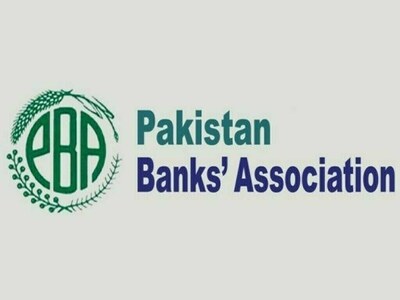PBA Endorses Federal Budget 2025-26 for Economic Stability
The Pakistan Banks Association (PBA) has voiced its strong support for the federal budget 2025–26, hailing it as a pivotal move toward comprehensive growth and a more stable economy.
In a formal statement to the press, the PBA highlighted the banking industry’s essential position as a major force in Pakistan’s financial progress. It emphasized its dedication to aiding national objectives and pushing forward essential structural changes.
The banking sector, in collaboration with the Ministry of Finance (MoF), the State Bank of Pakistan (SBP), and other relevant parties, is actively contributing to various initiatives presented in the federal budget, with the support of the Finance Minister and the SBP Governor.
Key Achievements and Initiatives
- Circular Debt Resolution: The PBA played a crucial role in finalizing the Rs1.275 trillion Circular Debt Resolution transaction, which is recognized as one of the most substantial and intricate financial endeavors in the nation’s history.
- The Association collaborated with the MoF, SBP, and the Central Power Purchasing Agency (CPPA) to tackle complicated challenges and obtain crucial regulatory approvals. This solution, backed by cash flow and designed to minimize the impact on consumers, is anticipated to bring stability to the power sector and lower electricity expenses.
National Subsistence Farmers Support Initiative (NSFSI)
The budget includes the introduction of the National Subsistence Farmers Support Initiative (NSFSI). This program seeks to empower small-scale farmers by providing digital, cash flow-based loans of up to Rs1 million. These loans will be directly deposited into digital wallets and can be used at POS-enabled stores for necessary agricultural supplies. Furthermore, the initiative offers tech-driven agricultural advisory services, along with an Electronic Warehouse Receipt (eWhR) system to improve financing options in rural areas.
Support for SMEs
The SME sector is experiencing renewed growth. The SBP’s SME Risk Coverage Scheme, launched the previous year, has already allocated over Rs311 billion to more than 95,000 enterprises. Consequently, SME financing has increased by 36%, reaching Rs641 billion, with a 51% increase in the number of beneficiaries. The scheme is enabling the government to achieve its Rs1.1 trillion credit target for SMEs by 2028.
Affordable Housing
A government-sponsored subsidy program for affordable housing is being implemented to assist buyers with low to moderate incomes. Banks will collaborate to offer 20-year mortgages at reduced rates, with the goal of raising Pakistan’s mortgage-to-GDP ratio from its current 0.3% to 5% by 2030.
Green Mobility
The government, along with the PBA, is introducing a targeted financing program for electric two- and three-wheelers to foster a more environmentally friendly and inclusive transportation system. This project will offer subsidized loans with minimal collateral to gig workers, women, and small business owners. It is designed to lower carbon emissions and urban pollution while also providing citizens with cost savings due to rising fuel costs.
Youth Development
The government’s development strategy places a strong emphasis on youth. Under the Prime Minister’s Youth Business and Agriculture Loan Scheme, Rs200 billion has been allocated to provide affordable financing to MSMEs, with a particular emphasis on agriculture. The program also includes green loans of up to Rs2.5 million to help convert diesel-powered tube wells to solar power, promoting a more sustainable and climate-resilient agricultural economy.
Pakistan Skills Impact Bond (PSIB)
In a notable development, Pakistan’s banking sector is collaborating with the British Asian Trust (BAT) to launch the Pakistan Skills Impact Bond (PSIB). This innovative financing approach transitions from conventional target-based funding to outcome-based financing, where success is determined by actual employment results. The PSIB is designed to tackle long-standing inefficiencies in the technical and vocational education sector, seeking to attract global outcome funders and CSR contributions to broaden its impact and marking a significant advancement in results-oriented public financing.
Chairman PBA Remarks
Zafar Masud, Chairman of the PBA, remarked, “These significant reforms and focused interventions demonstrate the changing role of the banking sector, not just as a financial intermediary but as a key catalyst for national transformation. As a crucial enabler, the PBA is committed to leading efforts to promote collaboration between the public and private sectors, influence progressive policy discussions, and promote innovation that produces tangible results.”
As Pakistan strives for economic stability and inclusive growth, the banking sector remains fully committed to the nation’s development goals and long-term resilience.



Comments (0)
No comments yet. Be the first to comment!
Leave a Comment